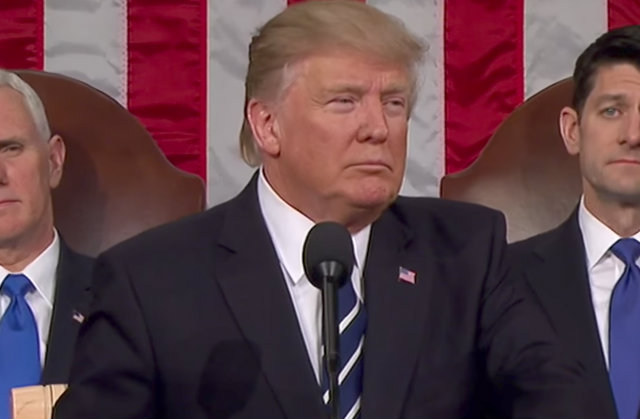 CREW v. Donald J. Trump, the case that made “emoluments” a household word, was filed in the Southern District of New York just three days after President Trump’s inauguration. Earlier this, Judge George Daniels heard much-anticipated oral arguments on the goverment motion to dismiss. Yes, for those of you keeping track, the case had been proceeding before Judge Ronnie Abrams, sister of LawNewz founder Dan Abrams, but Judge Abrams has since recused herself.
CREW v. Donald J. Trump, the case that made “emoluments” a household word, was filed in the Southern District of New York just three days after President Trump’s inauguration. Earlier this, Judge George Daniels heard much-anticipated oral arguments on the goverment motion to dismiss. Yes, for those of you keeping track, the case had been proceeding before Judge Ronnie Abrams, sister of LawNewz founder Dan Abrams, but Judge Abrams has since recused herself.
Trump himself was quick to brush off CREW v. Trump and several similar lawsuits as “totally without merit” – an argument on which his lawyers steadfastly followed up. Before we delve into this week’s court date, let’s recap what this case is about. Article I, Section 9 says:
“No Title of Nobility shall be granted by the United States: And no Person holding any Office of Profit or Trust under them, shall, without the Consent of the Congress, accept of any present, Emolument, Office, or Title, of any kind whatever, from any King, Prince or foreign State.”
The CREW lawsuit argues that Trump’s myriad business dealings create an enormous, multifaceted conflict of interest. From hotel rooms booked by heads of state to The Apprentice spinoffs on foreign networks, there are lots of ways President Trump stands to profit from business dealings from foreign governments. POTUS has a bunch of arguments in response. There are the three preliminary ones: that CREW has no standing to sue, that the court doesn’t have power to rule on the matter, and that the emoluments clause doesn’t apply to the president at all. And of course, there are also boatloads of arguments that amount to “there’s nothing wrong with Trump’s businesses profiting from his presidency.”
If you ask me, things like the Secret Service leasing entire floors at Trump Tower, and foreign leaders staying Trump hotels seem pretty damn emolumenty. But I will be the first to admit that analysis of the Emoluments Clause isn’t a simple matter. As with so many topics, the age before Trump simply never raised such concerns. Presidents have pretty much always divested themselves of business entanglements prior to taking the oath of office. As those everywhere on the political spectrum will agree, we’re living in a different world now.
During the hearing Judge Daniels asked several questions which may (or very well may not) tip us off as to how he will decide on the motion to dismiss. Judge Daniels discussed how “emolument” could mean any “compensation” received by a federal official on account of a benevolent foreign entity. “Why isn’t that the most direct and accurate definition of its use?” the judge asked Brett Shumate, the lawyer arguing for Trump, “that doesn’t seem to be a complicated concept.” Not everything Judge Daniels said, however, suggested support for the plaintiffs’ side, though. Judge Daniels hinted that he may believe that the role of policing emoluments violations falls to the legislative, and not judicial, branch of government: “Clearly the Constitution was written so that Congress would make the determination. They don’t have to sit on their hands if they think there’s a problem. They can do something about it.”
While the will-he-or-won’t-he question of Judge’s Daniels’ potential dismissal of the case is the first nail-biter of the CREW v. Trump spectacle, it’s not nearly as dramatic as the question that may arise later in the litigation: what could the Southern District of New York even do about Trump’s emoluments violations? If the case survives the motion to dismiss and the other preliminary hurdles, we will truly be in uncharted territory. Judge Daniels will be forced to grapple with the limits of judicial power to order a president to cure a constitutional violation. While it’s possible the outcome could mean an order forcing Trump to divest his holdings, create a blind trust, or reveal his tax returns, nothing is certain. This kind of lawsuit is literally unprecedented. Judge Daniels is expected to rule on the motion to dismiss some time within the next month or two, and LawNewz.com will keep you posted when he does.